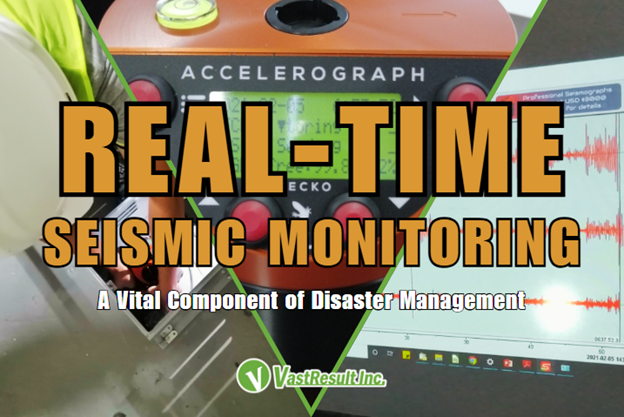
Earthquakes strike without warning, often leaving behind a trail of destruction. In a country like the Philippines—situated along the Pacific Ring of Fire—earthquake preparedness is not just important; it’s essential. While we cannot prevent earthquakes, we can minimize their impact through modern technology and well-planned disaster strategies.
One of the most powerful tools we have today is real-time seismic monitoring. This technology plays a crucial role in disaster management by detecting ground motion the moment it occurs and delivering timely data to decision-makers. This rapid information flow can save lives, protect infrastructure, and guide emergency response in real-time.
What Is Real-Time Seismic Monitoring?
Real-time seismic monitoring involves the continuous observation and recording of seismic activity using a network of instruments like:
Ground motion sensors
These devices detect even the slightest ground movement and transmit data instantly to centralized monitoring systems, such as those run by PHIVOLCS or private institutions.
This immediate feedback helps:
Alert emergency services and government agencies
Trigger early warning systems (where applicable)
Initiate rapid building and infrastructure assessments
Why Real-Time Monitoring Matters in Disaster Management
1. Enables Faster Emergency Response
Every second counts during an earthquake. Real-time seismic data allows first responders to:
Quickly assess which areas are hardest hit
Prioritize rescue and medical operations
Avoid dangerous zones prone to aftershocks or collapses
This helps reduce injuries, fatalities, and confusion.
2. Guides Structural Safety Assessments
After an earthquake, buildings and bridges may look stable but be structurally compromised. Real-time data:
Identifies abnormal vibrations and structural movements
Helps engineers make evidence-based decisions on building integrity
Prevents further loss due to structural failure after the main event
3. Supports Earthquake Early Warning Systems (EEWS)
In some parts of the world, seismic waves can be detected seconds before damaging tremors reach populated areas. Although still developing in the Philippines, this system can:
Automatically shut down elevators or gas lines
Alert residents via mobile apps, TV, or sirens
Give people a few crucial seconds to duck, cover, and hold
Real-time monitoring makes this level of preparedness possible.
4. Helps Authorities Coordinate Better
Disaster response agencies can:
Monitor quake activity live
Share information with local governments
Mobilize relief efforts based on real, not assumed, damage patterns
This coordination reduces chaos and helps communities bounce back faster.
5. Builds Public Trust and Awareness
When people know there’s a system in place to monitor and respond to earthquakes in real-time, they feel safer and more informed. This:
Encourages residents to participate in drills and preparedness programs
Builds a culture of safety and readiness
Strengthens overall disaster resilience in communities
Final Thoughts
Real-time seismic monitoring isn’t just a scientific tool—it’s a lifeline in disaster management. By providing instant data, it equips responders, engineers, and communities with the information they need to act fast and effectively. Combined with individual preparedness, this technology forms a powerful shield against one of nature’s most unpredictable threats.
Let’s work together to stay informed, stay prepared, and stay safe.
Want to integrate real-time seismic monitoring in your building or facility?
VastResult can help assess, install, and maintain accelerographs monitoring systems to support your earthquake readiness and compliance with safety standards.
Contact VastResult today at (02) 8404 0740 or email us at support@vastresult.com.
